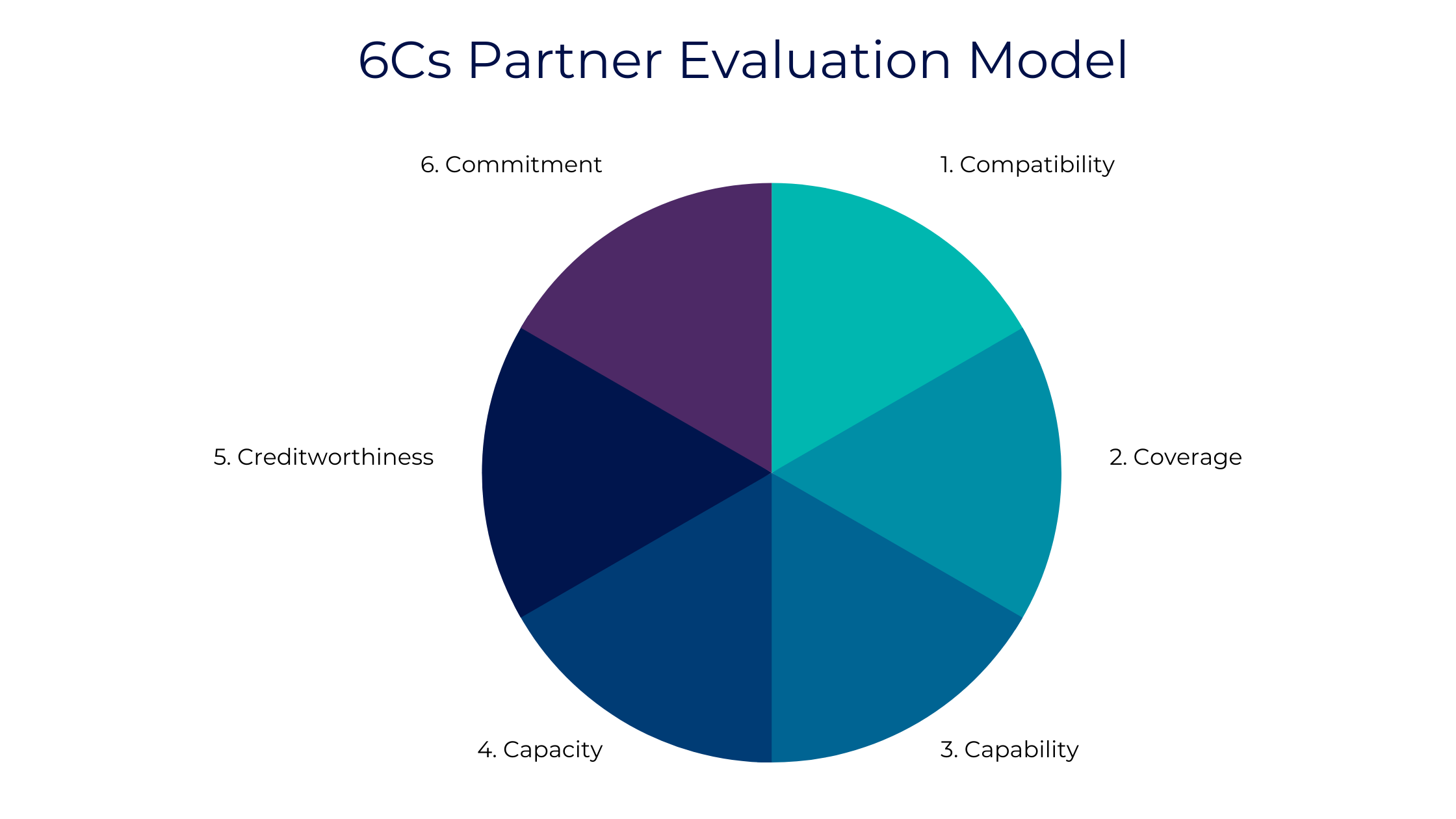On-demand webinar: The Partner Marketing Funnel: Introducing the 4 Why's
Partner marketing isn’t just about generating leads. It’s about moving opportunities through the funnel with clarity and purpose. Yet for many...
4 min read
Ruth Savory Oct 18, 2022 2:18:57 PM
.png)
Pascale Smith, Director at Sherpa was joined by two Channel leaders for our webinar discussing, “Is Vendor content marketing in the Channel outdated and inefficient?” - Terry Palmer (Verizon) and Marilyn Rogers (Channel Maven, a part of 360 Insights). This webinar seeks to explain why content is so important in influencing decisions in the B2B space. The crux of the challenge is how can you tell a compelling and valuable story when you have two authors; the Vendor and Partner.
Vendor content marketing is an umbrella term for ways Vendors improve product performance and relationships with Partners as it can provide;
Buying journeys have been simplified over the years - from booking flights to buying groceries online - yet buying technology, particularly B2B, is still a highly complex multi-stakeholder process. This is due to a) the increase in availability of options for buyers and b) the move away from point solution solving, to wider business challenge solving. It's fascinating how the involvement of (on average) 14-23 people all influencing a buying decision is unique to the technology industry (Gartner 2022). So, if you’re involved in initiating or leading a buying decision, there is a lot of research and evaluation to be done on behalf of those stakeholders. This is where Vendor supplied content can be incredibly powerful.
In Channel, we know that there are deep complexities within this purchase decision, particularly as we move towards a SaaS-based technology environment.
Vendor and Partner challenges
Marilyn Rogers, begins by explaining the challenges Vendors and Partners face in this space. Lack of resources and expertise she explains are the primary reasons as to why organizations are struggling to adjust to these challenges, with more using agencies to tap into that expertise, necessary in the face of events like the so-called “Great Resignation”.
Terry Palmer expanded by suggesting from his perspective - having experience in both Partner and Vendor organizations - that Vendor messaging must be relevant and understandable for the Partner. Unlike the customer, Vendors don’t move very quickly so being agile and able to respond to change quickly is vital, if Vendors want to make the most out of their content - and relationships - with Partners. Going back and forth between Vendor and Partner whilst trying to progress with their programs due to ineffective messaging frameworks and complexities in brand guidelines is common and is a huge challenge, Terry emphasized. This is particularly pertinent when Vendors would ‘refresh’ their programs every six months or so,coupled with increasing complexities in the content marketing arena meaning Partners simply can't keep up.
Navigating this complexity, particularly around resource scarcity, is at the forefront of Vendors’ strategies moving forward. Marilyn explains that many Vendors are addressing this by providing a messaging platform and framework that helps their Partners quickly and easily go to market with their solutions. Successful Vendors are using it to their advantage by allowing Partners to augment and add their own spin on content and easily communicate what their value proposition is. She lists that a messaging framework consists of;
And coupled with support for MDF and wraparound care like managed services, Partners are able to really bring home their value proposition.
Partner differentiation and Vendor positioning
One of the key values that Partners bring is their differentiation - yet as Pascale explains this can be a challenge for Partners when Vendors have very strict guidelines around how their brand is communicated. Finding a pure balance between this is fiddly. Terry explains; "You begin to question which brand has the power...you inadvertently start competing for page space with your Partner and if you can simplify to and say "what within this content is critical to the customer" then you start to get a much sharper message."
The dynamic between Partner differentiation and Vendor positioning is a key aspect to consider - Marilyn explains that when you have a great messaging framework, you can give Partners the information they need, but can “run with it”. At Sherpa we see an increase in focus on Vendors not only providing tools, but providing Partners with key skills to better create a successful joint value proposition.
Partner upskilling and lifecycle support
Marilyn agrees, emphasizing the huge shift in Partner enablement being a core part of the Vendor-Partner relationship. She recommends Vendors utilize training around best practices for social media, social selling, video based training and wider thought-leadership production. Vendors producing content then making it available is often unfortunately where the transaction ends. Just because you have social posts that Partners share it doesn't mean they’re used to their full potential. It's necessary to educate Partners about the value of doing this well, Pascale elaborates.Terry emphasizes that it is down to the style and capability of your Partners - vertical vs horizontal requirements from Partners influence requirements for support. Agencies often can play a huge part in supporting with social media content marketing.
Is there support coming from Vendors for Partners during the whole lifecycle? Terry explains that there is, but in a much more private capacity, particularly when it comes to challenges program members are facing. This support can be anywhere on a spectrum between 1:1 support, to multi-member chat forums; the key takeaway is that this support is under the surface with education at its core.
Pascale discusses that Sherpa often comes across Vendors and Partners who don't have the capability, time or resource to execute on their marketing, particularly when a large number of Partners are aligned to more than one Vendor to sell multiple solutions/products. Marilyn explains that this is pertinent in many smaller sized Partners without the infrastructure - for example you might provide TCMA, but the implementation of this becomes a challenge due to lack of tools and best practices around email and email automation. Terry explains that the most useful tools are those which give everyone ‘time back’ by which he means leveraging the digitalisation of the delivery of content.
Vendor content marketing in practice
When we look at this problem with our clients, there are three dimensions we like to plot: 1. Is around the Vendor’s requirement for scale – how many Partners / size of relevant ecosystem 2. Is how differentiated those Partners are or need to be to add value to the end customers and 3. How effective is the marketing from an ROI / resource intense perspective. Take a look at the graphic below and when we plot the different marketing strategies onto this, we can start to see how this playing field maps out.
Key takeaways
We can deliver a variety of campaign assets based on Partners' budgets, target audience and the campaign and business objectives they are looking to fulfill. If you would like to hear more about how we approach Vendor content marketing throughout Channel activities, please do get in touch.
.jpeg)
Partner marketing isn’t just about generating leads. It’s about moving opportunities through the funnel with clarity and purpose. Yet for many...
%20(19).png)
Partner marketing is entering a new era.

Partner marketing isn’t just evolving, it’s accelerating. With buying committees now stretching to 20+ decision-makers, AI reshaping how we work, and...

At the heart of any channel is its people. And where you have a workforce you have workplace culture, which is defined by the character and...

Partners bring scale, vertical expertise, customer management skills and renewal process to technology vendors - it goes without saying that the...

We recently held a virtual Channel Chat with a selection of tech Vendors on the topic of Partner recruitment, to share professional opinions and best...